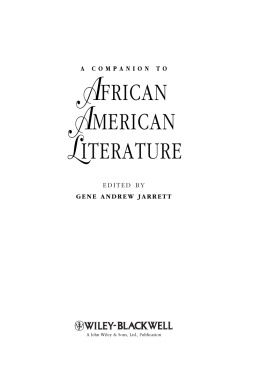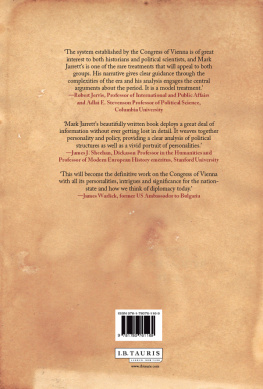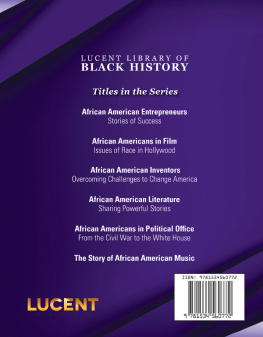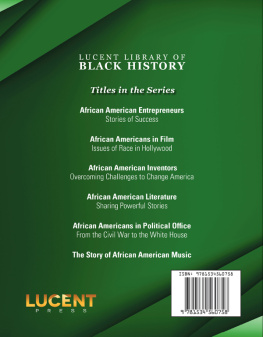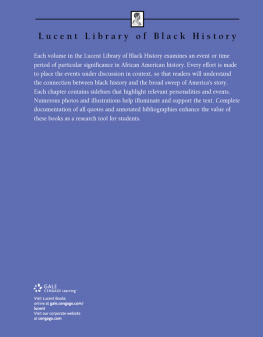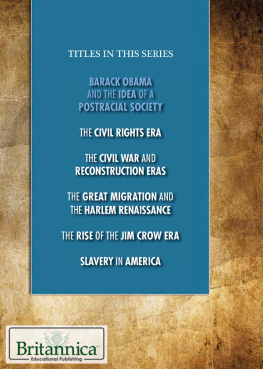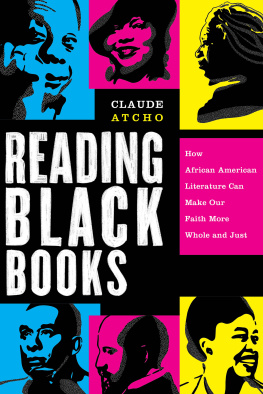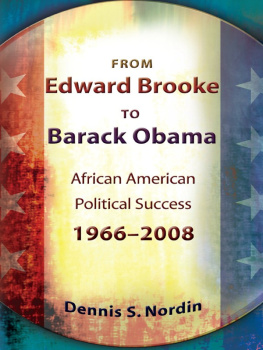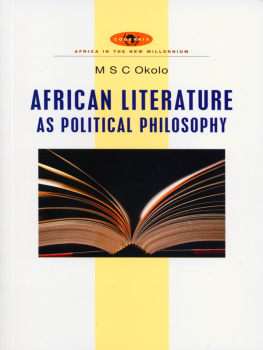Representing the Race
Representing the Race
A New Political History of African American Literature
Gene Andrew Jarrett

NEW YORK UNIVERSITY PRESS
New York and London
www.nyupress.org
2011 by New York University
All rights reserved
References to Internet websites (URLs) were accurate at the time of writing.
Neither the author nor New York University Press is responsible for URLs
that may have expired or changed since the manuscript was prepared.
Library of Congress Cataloging-in-Publication Data
Jarrett, Gene Andrew, 1975
Representing the race : a new political history of African American literature /
Gene Andrew Jarrett.
p. cm.
Includes bibliographical references and index.
ISBN 9780814743386 (cloth : acid-free paper) ISBN 9780814743393
(pbk. : acid-free paper) ISBN 9780814743409 (e-book)
1. American literatureAfrican American authorsHistory and criticism.
2. Politics and literatureUnited StatesHistory and criticism. 3.
African AmericansIntellectual life. I. Title.
PS153.N5J398 2011
810.9896073dc22 2011011052
New York University Press books are printed on acid-free paper,
and their binding materials are chosen for strength and durability.
We strive to use environmentally responsible suppliers and materials
to the greatest extent possible in publishing our books.
Manufactured in the United States of America
c 10 9 8 7 6 5 4 3 2 1
p 10 9 8 7 6 5 4 3 2 1
Contents
Preface and Acknowledgments
Unwittingly, this book began while I was writing my first book, Deans and Truants: Race and Realism in African American Literature (2007), about the enormous critical and commercial expectations African American authors faced to portray their race in realistic waysto demonstrate what I call racial realism. If the authors ever defied these expectations by casting not African American but white or raceless literary characters, then a host of cultural arbiters disparaged their writings as poor quality and tossed them into noncanonical dustbins. In Deans and Truants, I aimed to counter these practices of aesthetic judgment and canon formation that have persisted from the publications of these writings until the present day. I argued that we should revisit the circumstances, recover the writings, and redeem the authors of this anomalous tradition of white and raceless texts, a tradition that I showed to be more prevalent across history and more constitutive of African American literary identity than most of us have been led to think. When read according to other coordinates of aesthetic ideology, such as literary naturalism, science fiction, historical romance, and postmodernism, then this tradition indeed urges us to rethink canonical historiographies of African American literature that unfairly privilege writings of racial realism over those that avoid it.
In the introduction to Deans and Truants, I proposed a minor idea that blossomed into Representing the Race: the anomalous status of white or raceless kinds of African American literature had both exposed and undercut the relationship between cultural politics and political culture by which racial realism became a proxy for racial progress. Consequently, the authors suffered public criticism for shirking the political responsibilities inevitably bestowed on them as identifiable members of the race.some stories in Deans and Truants, among other well-known stories, from a new perspective, but I also tell new stories, all with the hope of developing an innovative political history of African American literature that overcomes the problematic ideas about race, culture, and politics that have been passed down from generation to generation and that still circulate among us today.
Saying that the growth of Representing the Race spans two successive moments of academic writing means that I have a lot of people to thank. Three deserve recognition above all. First, I appreciate my longtime colleague Henry Louis Gates Jr. During a conversation with me about the idea of this book, he challenged me to determine precisely how one measures the political value of African American literature. Posed as a question in the introductions first sentence, Skips challenge guided my writing for the past several years. Next, I am grateful to Madhu Dubey, another longtime colleague. Years ago, at a Woodrow Wilson Career Enhancement Fellowship Conference, held in Princeton, reuniting new assistant professors with their mentors (she was my mentor), we ate breakfast while arguing over the merits of my thesis. Ideas from that discussion still resonate with me today, as do those in her 2003 book, Signs and Cities: Black Literary Postmodernism, which I still regard as the model of rigorous and trenchant African American literary scholarship. Finally, I must express admiration for Kenneth W. Warren, whom I have debated both in person and in print, about African American literature. In this book, I cite and critique multiple times his work on this topic, as most critics do with influential work they take seriously. Hailing as second to none his ability to pinpoint ironic contradictions or connections among ideas that, on the surface, seem in agreement or incompatible, I hope that this book piques his interest in kind.
A number of individuals were key to bringing this book to fruition. I am indebted to Eric Zinner, editorial director of New York University Press, for encouraging me from day one and for his faith in the project. NYU Presss assistant editor, Ciara McLaughlin, shepherded the manuscript through the long peer-review process, and Despina Papazoglou Gimbel, Andrew Katz, and Martic Tulic cared for it during the copyediting process. The peer reviewerswho were anonymous, except for John Ernest, who supportively disclosed himselfprovided excellent critiques and questions. Finally, I praise my literary agent, Wendy Strothman, for always paying attention to what is in my best interest as an author.
The aid I receive from my home institution, Boston University, has been outstanding. The following colleagues in the English Department I have talked to about this book, either at length or in passing: Laurence Breiner, . The former dean of the College of Arts and Sciences, Jeffrey Henderson; the outgoing university provost, David K. Campbell; and the outgoing associate dean for faculty, Peter Doeringer, all deserve mention here for their generosity.
A host of college and university faculty in the greater New England area have been great colleagues and supplied much food for thought over breakfasts, lunches, and dinners: at Harvard University, aside from Skip Gates, Lawrence D. Bobo, Lawrence Buell, Glenda R. Carpio, Roland G. Fryer, Werner Sollors, and John Stauffer; at Tufts University, Elizabeth Ammons, Peniel Joseph, and Christina Sharpe; at Boston College, Martin Summers; at Brown University, Rolland Murray and Daniel Kim; at Yale University, Wai Chee Dimock, Robert Stepto, and Brian Walsh. Beyond this area, the following are also personal colleagues: Houston A. Baker Jr., Herman Beavers, Adam Biggs, Daphne Brooks, Vincent Carretta, Frank Christianson, Thadious Davis, Theresa Delgadillo, Brent Hayes Edwards, Michele Elam, GuyMark Foster, Shelley Fisher Fishkin, Christopher Freeburg, Yogita Goyal, Lena Hill, Michael Hill, George Hutchinson, Lawrence P. Jackson, Brian Johnson, Gavin Jones, Meta DuEwa Jones, Arlene Keizer, Jacob Leland, Keith D. Leonard, Robert S. Levine, William J. Maxwell, Koritha Mitchell, Shirley Moody-Turner, Rowan Ricardo Phillips, Marlon Ross, Mark Sanders, Cherene Sherrard-Johnson, James Edward Smethurst, Valerie Smith, Mark Christian Thompson, Jeffrey Allen Tucker, Mary Helen Washington, Ivy G. Wilson, and Richard Yarborough.
Next page

